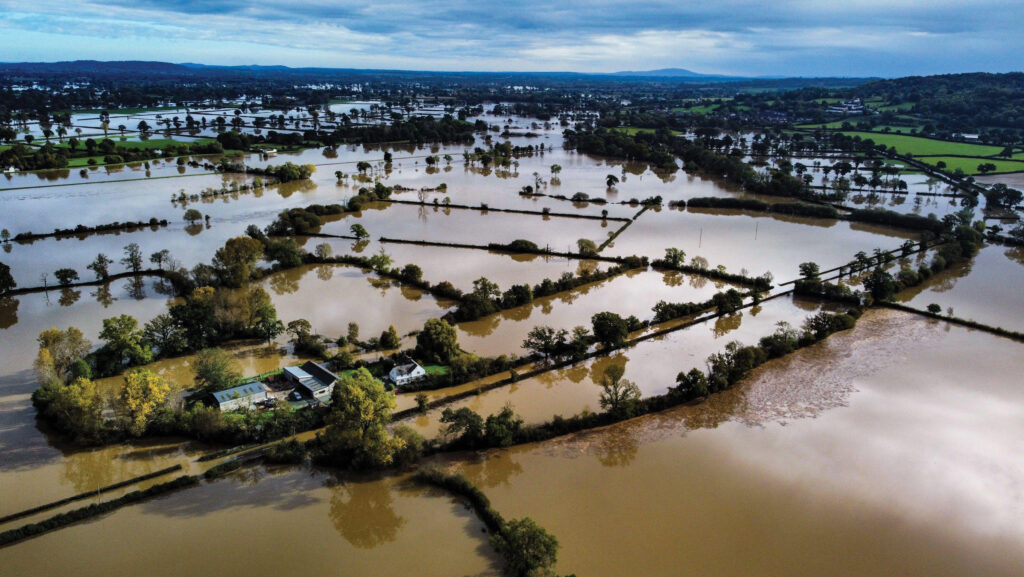Welsh farm leaders demand help for flood-stricken farmers
 © PA Images/Alamy Stock Photo
© PA Images/Alamy Stock Photo Welsh farm leaders are demanding government help for farmers struggling with the catastrophic impact of flooding after Wales experienced the second wettest eight-month period in 100 years.
Following one of the wettest winters on record in Wales, March and April have seen further heavy rain, with many areas receiving double the rainfall they would expect against long-term weather averages.
This has placed severe strain on farm businesses, with ground conditions preventing farmers from turning out livestock and drilling spring crops.
See also: Farmers Weekly Podcast Ep 201: Defra relaxes flood compensation rule
Challenging
NFU Cymru says the lambing season has been “extremely challenging”, with some farmers having to buy additional feed and straw to extend housing periods for stock, adding a huge cost burden.
Persistent wet weather has also had a devastating impact on lambing and many young lambs have been lost to hypothermia and Schmallenberg disease.
As Farmers Weekly went to press, farm leaders in Wales were preparing for a virtual summit hosted by Welsh government on Thursday 18 April to explore possible interventions across the supply chain to deal with the exceptional circumstances some farmers are facing.
Ahead of the meeting, NFU Cymru put forward several key asks of Welsh government to support farmers through the current crisis.
Flexibility
In the short term, the union says Welsh government must show flexibility in the delivery of various scheme requirements, including cross-compliance for the Basic Payment Scheme (BPS) and other rural investment schemes, such as the Growing for the Environment Scheme, introducing derogations where necessary.
NFU Cymru welcomed the Welsh government’s commitment to maintain BPS funding at the same level for 2024, but said the need for timely delivery of payments “cannot be overstated”.
The union also urged regulator Natural Resources Wales to adopt a flexible approach towards on-the-ground conditions.
Longer term, the union said a stability measure must be included as a permanent feature in the upcoming Sustainable Farming Scheme (SFS) “to provide stability and address volatility caused by factors beyond the control of individual farmers”.
Meanwhile, Welsh rural affairs minister Huw Irranca-Davies told the BBC there were no plans for Welsh government to pause the rollout of the SFS, from April 2025.
Following widespread farmer protests against environmental proposals included in the scheme, the minister said “knotty issues” could be worked out and he was “seeing what other ideas are out there” regarding the need for all farms to have at least 10% of tree cover.
Mark Williams, a beef and sheep farmer based in Welshpool, Powys, said: “We are now mid-April and ground conditions are still very wet. We have a mountain of manure to spread because we have had a limited opportunity to date. Drilling spring crops is a no-go at present.”
England update
Asked how he would like Welsh government to respond to his predicament, Mr Williams said: “It’s interesting to see what the Westminster government has done for England, where farmers who have been badly affected by flooding can apply for grants to offset the costs caused by such prolonged wet weather.
“If Westminster can do it, why can’t the Welsh government?”
In England, Defra launched the Farming Recovery Fund last week to support farmers who have suffered uninsurable damages this winter, with grants up to £25,000 available.
Following an outcry from the NFU and farmers, Defra has removed the requirement for land to be within 150m of rivers to be eligible, but there are no updates on rolling out the scheme to further areas yet.
